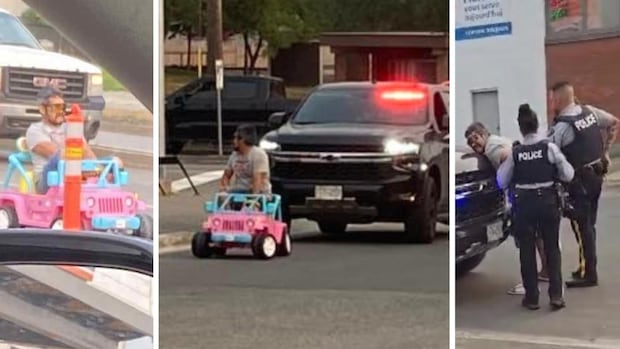Manitoba judge denies attempt to quash alleged serial killer’s murder charge in death of Mashkode Bizhiki’ikwe

WARNING: This story contains distressing details.
A judge has dismissed an attempt to quash one of four first-degree murder charges against a man accused of killing four Indigenous women in Winnipeg, just two weeks ahead of his jury trial.
Jeremy Skibicki, 37, pleaded not guilty in November to all four counts, which involved the deaths of three First Nations women — Marcedes Myran, 26, Morgan Harris, 39, and Rebecca Contois, 24 — and a fourth unidentified woman, who was given the name Mashkode Bizhiki’ikwe, or Buffalo Woman, by community members.
Police have said they believe Mashkode Bizhiki’ikwe was Indigenous and in her mid-20s. Their investigation suggested she was the first of the four women to be killed, on or around March 15, 2022.
Skibicki’s lawyers filed a motion earlier this month to quash the count involving the unidentified woman, arguing the fact that there is no victim identified or body found makes the charge what’s known as a “nullity,” meaning it has no legal force.
“Our main point is that we do not have an identifiable victim, and that the count should be quashed on its face due to that,” defence lawyer Brittney Hoyt told Court of King’s Bench Chief Justice Glenn Joyal during a 40-minute hearing on Tuesday afternoon.
Skibicki sat in the prisoner’s box with his ankles shackled during Tuesday’s hearing, while relatives of the slain women sat together in the gallery, the sister of one of the women anxiously tapping her heel as she listened.
Crown attorney Renee Lagimodiere argued that accepting the defence’s argument on the motion would amount to “a ruling that a violent crime can only be proven when the Crown knows the identity of the victim.
“And from the Crown’s perspective, that is simply not the case,” Lagimodiere said.
Joyal said he did not accept the arguments made by Skibicki’s defence team and dismissed the motion.
The judge said he found the details of the charge involving the unidentified woman were “sufficiently identified, and can be seen to be clear enough so as to enable the accused to know what it is that he faces in the prosecution that will take place in two weeks’ time.”
While details of the application to quash the charge can be reported, a limited publication ban applies to other information that emerged during the hearing.

Contois’s partial remains were recovered from the Brady landfill in June 2022, and police have said they believe Myran’s and Harris’s remains are in the Prairie Green landfill north of Winnipeg, but the location of Buffalo Woman’s remains are unknown.
Last month, the provincial and federal governments each pledged $20 million to fund a search of the Prairie Green landfill.
Skibicki’s 28-day jury trial is scheduled to begin April 29.
Support is available for anyone affected by details of this case. If you require support, you can contact Ka Ni Kanichihk’s Medicine Bear Counselling, Support and Elder Services at 204-594-6500, ext. 102 or 104 (within Winnipeg), or 1-888-953-5264 (outside Winnipeg).
Support is also available via Manitoba Keewatinowi Okimakanak’s Missing and Murdered Indigenous Women and Girls Liaison unit at 1-800-442-0488 or 204-677-1648.



